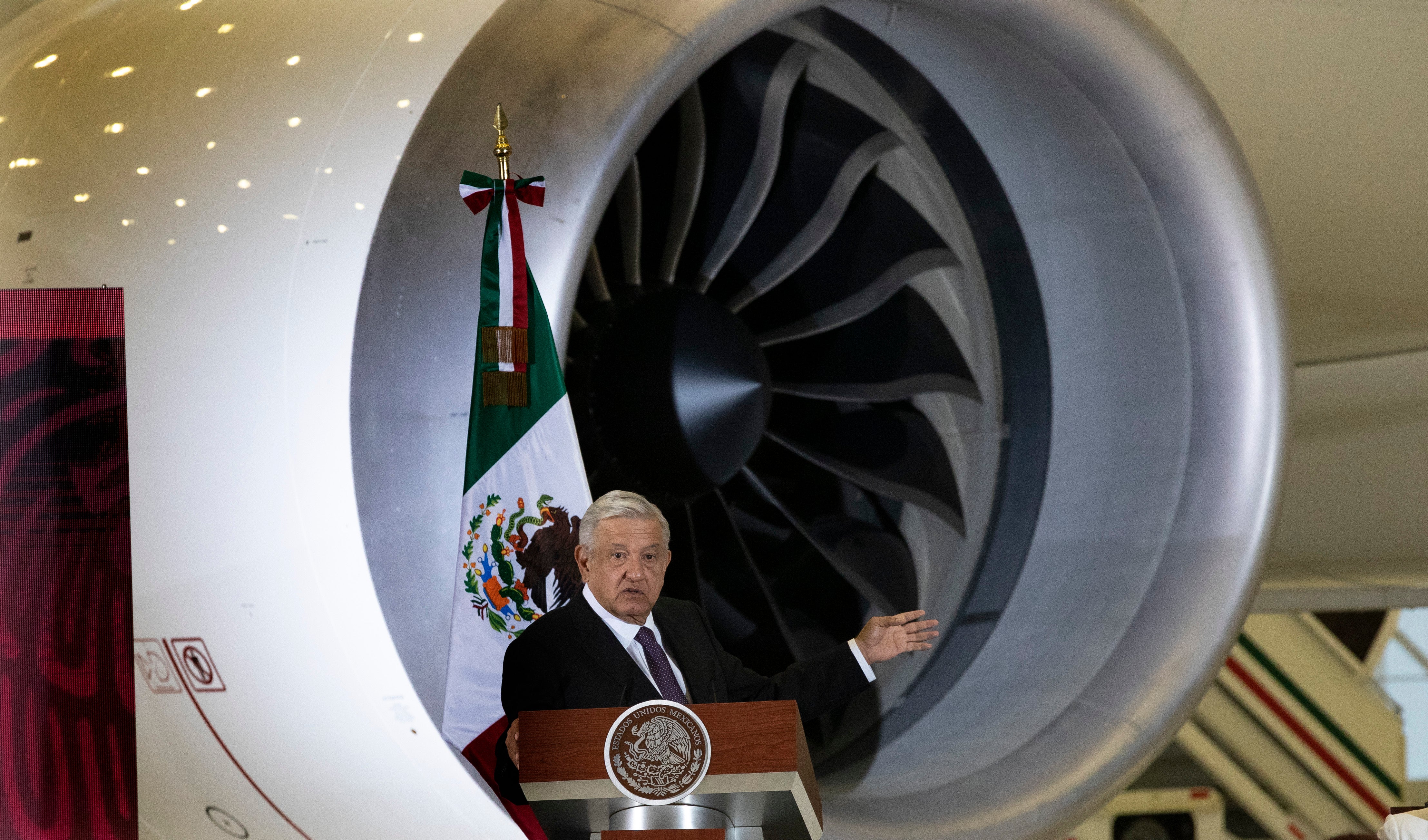Mexico's army-run airline to take off in September, but the flight attendants won't be soldiers
Mexico has announced its army-run airline will start up in September, but flight attendants won’t be soldiers

Mexico announced Thursday that its army-run airline will start up in September — but the flight attendants won’t be soldiers.
The administration of President Andrés Manuel López Obrador has also put trains, law enforcement, tourism and infrastructure projects under the army’s command. That includes one tourist ferry line serving the Isla Marias islands that is manned by navy personnel.
But on the new Mexicana airline, you won’t have to worry about being told to “Fasten your seatbelt, and that’s an order!” The Defense Department said the airline will lease 10 Boeing 737-800 jets from the manufacturer, which will provide pilots and cabin crew.
Defense Secretary Luis Cresencio Sandoval originally said the contract with Boeing would be for $4 billion, but later corrected himself to say he meant 4 billion pesos, or about $235 million.
He said the airline is looking at 20 potential routes between Mexico City and large and mid-size Mexican cities, some of which have limited service at present, as well as tourist resorts like Cancun.
Sandoval promised ticket prices would be 18% to 20% below private competitors, but was unsure if the airline would profitable. If not, it presumably would have to operate with government subsidies.
The airline has been named Mexicana after a partly state-owned carrier that went into bankruptcy in 2010 and closed.
The 8,500 laid-off former employees of Mexicana are longtime supporters of the president, and his administration agreed to pay them almost $50 million for the commercial rights to the old airline's brand name and some decrepit properties. Experts have said the amount far exceeded the market value.
The new airline combines López Obrador’s love of state-owned companies — he has criticized decisions by previous administrations to sell off once-extensive government companies — and his near-total reliance on the armed forces, which he views as honest and a bulwark against corruption.
A military-led company operates the new Felipe Angeles airport that the president had built as a third airport serving Mexico City and is constructing a new airport at the Caribbean coast resort of Tulum.
Apart from boosting traffic at the underused Felipe Angeles airport, the army-run Mexicana apparently will provide flights to feed passengers into the president's Maya Train tourism project. The army is also building that train line, which will connect beach resorts and archaeological sites on the Yucatan Peninsula.
The army, which has no experience running commercial flights, has created a subsidiary ito be in charge of Mexicana.
López Obrador has suggested the new airline might also serve one of the classic roles of state-owned carriers: providing service to provincial airports on routes considered unprofitable by commercial airlines. That idea could run afoul of regulations that now prohibit airlines from running Mexican airports, or vice versa.
Bookmark popover
Removed from bookmarks